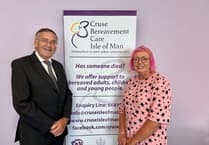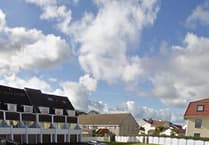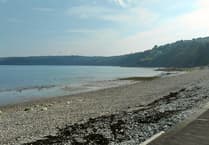‘Migrant labour exploitation risks turning into a national crisis, unless changes are urgently made to the immigration and labour enforcement system.’
That powerful statement was made in a report by the Work Rights Centre following its investigation into the UK work visa system. Do we in the Isle of Man need to be concerned about migrant labour exploitation, or is it a problem which occurs elsewhere?
In my experience it is an issue for the Isle of Man and one which all businesses and residents need to be alert to.
Modern slavery is a serious and often hidden crime where people are exploited for criminal gain.
It is an umbrella term for any form of servitude or forced labour whether that is labour or sexual exploitation, domestic servitude, forced marriage, human trafficking, organ harvesting or criminal exploitation.
Globally it is estimated that 40 to 50 million people are in modern slavery. There is no typical victim and it can affect men, women and children of all nationalities.
However, it is most prevalent among the most vulnerable or minority groups and it often coincides with poverty, lack of education and language skills, economic imbalances, war and unstable political conditions.
We should be careful not to think of modern slavery victims only as people smuggled in the back of lorries or imprisoned inside squalid flats.
All modern slavery victims are subject to some form of coercion and that could be physical violence, but may also involve deception or abuse of power.
Commonly migrant labour exploitation involves false promises of legitimate jobs, debt bondage, extortion and control over working conditions and accommodation.
This control takes many forms.
Some legitimate migrants have been deceived by sugar-coated promises, so victims may appear to have given their consent.
However, in reality they may have little ability to choose to leave the exploitative situation.
Often they or their families may be threatened or are indebted to the criminals and their network of recruiters to many tens of thousands of pounds.
This allows unscrupulous people to exercise considerable control by exploiting the victim’s fears of being reported to the police or immigration authorities and deported. Many migrants have poor English and little knowledge of their immigration status or legal and employment rights.
Labour exploitation can occur anywhere but it can be common in certain industries such as nail bars, takeaways, car washes, food processing, fishing and agriculture, warehousing and distribution, building sites and cleaning work.
Organised crime gangs with an eye to profit often target industries which need large workforces of low-skilled labour during certain seasons.
In the UK’s health and care sector these gangs profit in multiple ways by taking a cut from the employer while also receiving hefty illegal recruitment fees to obtain the job offers from the migrants themselves.
Criminals take ongoing wage deductions (often dressed up as service or accommodation payments) and also maximise their profits by using migrants’ identities for benefit frauds and their bank accounts to launder criminal proceeds. It is a pernicious crime that preys on the vulnerable and defrauds society.
Despite our geographic location, the Isle of Man is not isolated from the risks of migrant labour exploitation.
Modern slavery occurs in plain sight and neighbours, work colleagues and customers so often fail to notice what’s happening.
We need to learn to recognise the signs of excessive hours, no or poor English, employers who speak on behalf of their workers, houses of multiple occupancy and be alert to the possibility of modern slavery.
If you are offered a service for much less than you would expect to pay for it, then almost certainly someone is being exploited.
Employers and businesses need to demand high ethical standards and transparency from recruitment partners and suppliers. Landlords, banks, public servants and service providers need to look carefully at the people using their service and act on any concerns.
This isn’t a problem that the Isle of Man Government can solve on its own. To combat modern slavery takes each of us to acknowledge it is an issue on our Island, and then to notice the people who live and work in our communities and raise concerns when things don’t seem quite right.
There are plenty of accessible resources online that can help make you and your business more aware of modern slavery typologies, and the signs to look out for. I will be running some modern slavery workshops in the New Year and you can email [email protected] if you would like further information,
Maria Bridson is a Manx advocate qualified for over 20 years who specialises in relocating international clients to live, work and set up businesses in the Isle of Man. She is recognised as an expert in her field in dealing with immigration and nationality problems. She leads the immigration team at BridsonHalsall Advocates and is also chair of local charity Isle of Play.




